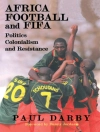Children Behaving Badly?
Violence between children is a controversial and frequently misunderstood issue, one that has seen media-fuelled moral panic come to dominate public perceptions and debate. Children Behaving Badly? presents a powerful challenge to commonly held beliefs about peer violence and portrays it as an important child welfare concern.
By gathering together the most updated international research and expert commentary on peer violence issues from across the childhood spectrum, this volume directly addresses the complexity of this troubling issue from a range of multidisciplinary disciplines and perspectives. Contributions throughout the text reveal how childhood is not a homogenous experience but fragmented by gender, ethnicity, sexuality and poverty, which are each addressed within specific chapters. Other issues explored include pre-school children and peer violence, bullying, youth gangs, knife crime, teenage partner violence, sibling abuse, homophobia, international media depictions of violent youth, and implications for professionals working with children and young people.
Throughout the text, new and original research insights are presented with the goal of providing the reader with a greater understanding of the safeguarding of children and young people from this form of violence. Children Behaving Badly? is essential reading for policy makers, researchers, students, and practitioners from a wide range of child welfare disciplines about a highly topical and complex social problem.
विषयसूची
List of Contributors.
Acknowledgements.
1 Introduction (Christine Barter and David Berridge).
Part I Peer Violence in Different Contexts.
2 Understanding Dimensions of ‘Peer Violence’ in Preschool Settings: An Exploration of Key Issues and Questions (Jane Brown).
3 Understanding Why Children and Young People Engage in Bullying at School (Helen Cowie).
4 Sibling Abuse and Bullying in Childhood and Adolescence: Knowns and Unknowns (Paul B. Naylor, Laurie Petch and Jenna V. Williams).
5 Young People, Gangs and Street-based Violence (Tara Young and Simon Hallsworth).
6 Peer Violence in Provision for Children in Care (Andrew Kendrick).
Part II Different Forms of Peer Violence.
7 Young Men, Violence and Racism (Les Back).
8 A Thoroughly Gendered Affair: Teenage Partner Violence and Exploitation (Christine Barter).
9 Children and Young People with Harmful Sexual Behaviours (Simon Hackett).
10 Homophobia and Peer Violence (Ian Rivers).
Part III Understanding Peer Violence.
11 Impact of Child Maltreatment and Domestic Violence (Veronica M. Herrera and Jeffrey Stuewig).
12 Media Representations of Youth Violence (Sharon L. Nichols).
13 Boys, Girls and Performing Normative Violence in Schools: A Gendered Critique of Bully Discourses (Jessica Ringrose and Emma Renold).
Part IV Responding to Peer Violence.
14 Bullets, Blades and Mean Streets: Youth Violence and Criminal Justice Failure (Peter Squires and Carlie Goldsmith).
15 Delivering Preventive Programmes in Schools: Identifying Gender Issues (Nicky Stanley, Jane Ellis and Jo Bell).
16 Conclusion (David Berridge and Christine Barter).
Index.
लेखक के बारे में
Christine Barter is an NSPCC Senior Research Fellow at the School for Policy Studies, University of Bristol. Previously she was an NSPCC Senior Research Fellow with the University of Bedfordshire. She has published widely on a range of children’s welfare issues.
David Berridge is Professor of Child and Family Welfare and Head of the Centre for Family Policy and Child Welfare at the School for Policy Studies, University of Bristol. David has been a researcher for 25 years and was awarded an OBE in January 2005 for services to children.












